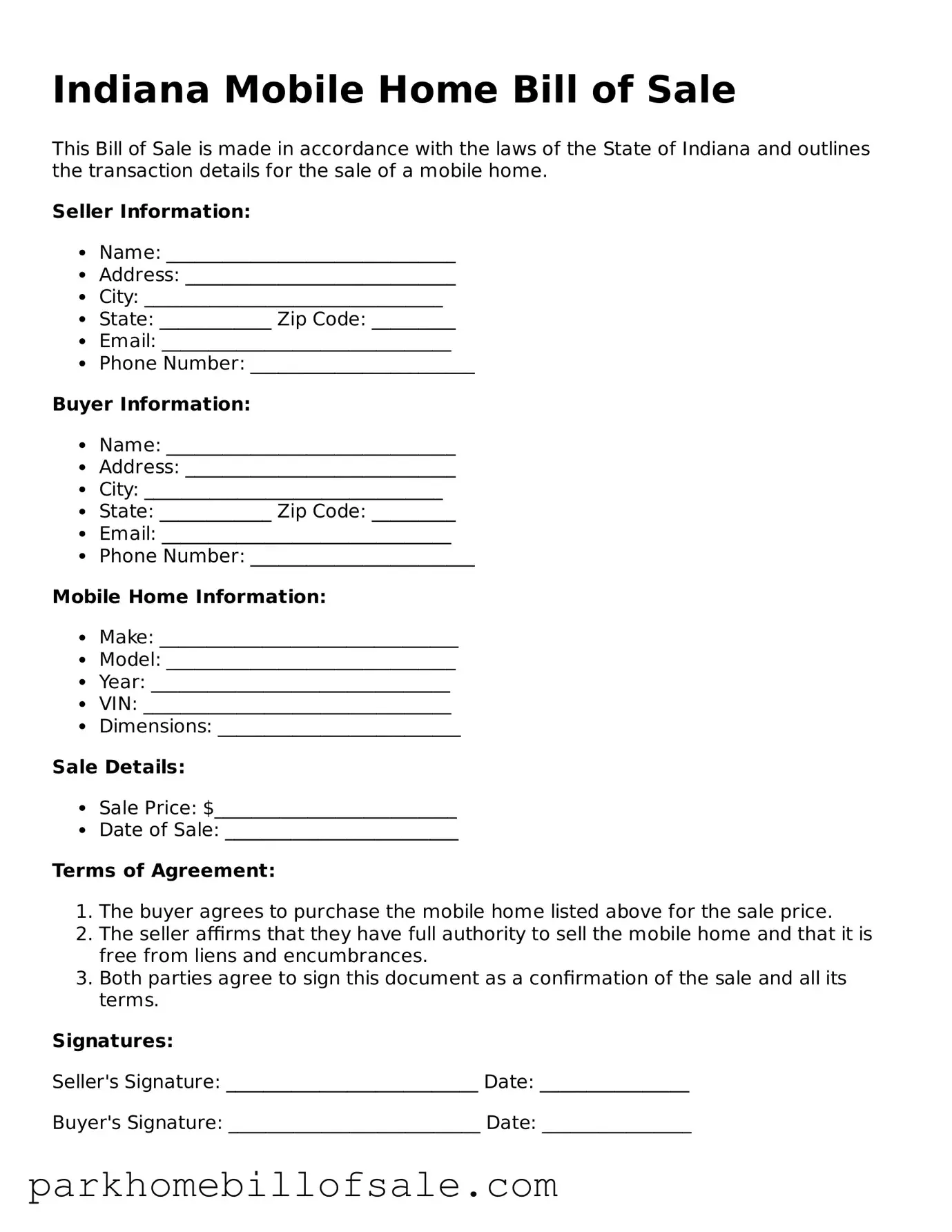Documents used along the form
When buying or selling a mobile home in Indiana, several documents may accompany the Mobile Home Bill of Sale. Each of these documents serves a specific purpose to ensure a smooth transaction and protect the interests of both parties involved.
- Title Transfer Form: This document is essential for transferring ownership of the mobile home from the seller to the buyer. It must be completed and submitted to the appropriate state agency to officially record the change in ownership.
- Affidavit of Affixation: If the mobile home is permanently attached to land, this affidavit is necessary. It declares that the mobile home is no longer considered personal property and has become part of the real estate.
- Sales Tax Form: In Indiana, sales tax may apply to the purchase of a mobile home. This form helps calculate and report the applicable sales tax to the state, ensuring compliance with tax regulations.
- Inspection Report: An inspection report may be requested by the buyer to assess the condition of the mobile home. This document provides details about any repairs needed or issues that may affect the value of the home.
Having these documents ready can help facilitate a successful transaction. Each plays a role in ensuring that both the buyer and seller are protected and that the sale is legally recognized.
